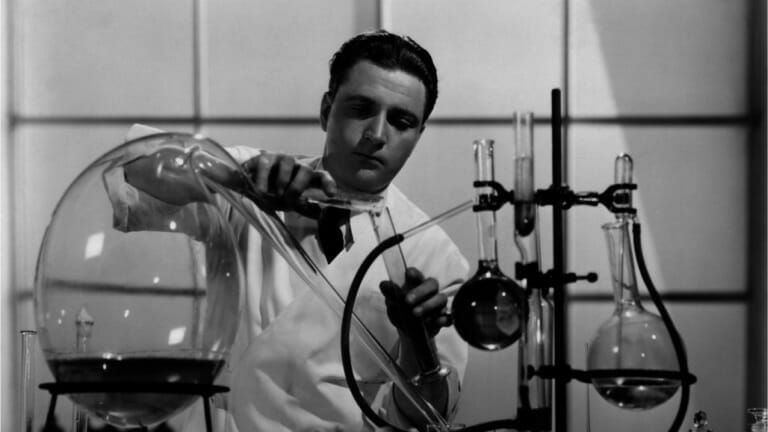We spent years accumulating money for retirement, but when we finally get there, it’s all about decumulation, counting down your money. Learn how to retire and what to do with your time and money.
We talk a lot about early retirement, but today we’re talking to someone who’s living it. J. David Stein retired at 46 and had since launched his successful podcast, Money for the Rest of Us.
Retirement is a Dirty Word
If you’re fairly young and tell people you’re retired, two things will happen. They’ll be jealous and maybe even resentful, or they’ll feel sorry for you, sure that you’re bored and unhappy and will come up with all sorts of projects you should work start.
As it turns out, retirement in the conventional sense of it isn’t so good for you either. Retirement is ranked #10 on the list of the 43 most stressful life events. Below is how the Harvard School of Public Health described retirement;
“A life course transition involving environmental changes that reshape health behaviors, social interactions, and psycho-social stresses” that also brings shifts in identity and preferences. In other words, moving from work to no work comes with a boatload of other changes.”
Work provides a lot of benefits that we overlook. Work gives us a purpose, a reason to get out of the house, a routine, and social interaction. We can forget all of those pluses when all we can think about is how aggravating the commute is or how much we hate getting up in the morning.
Don’t believe it? Just look at Andy Rooney. He retired from 60 Minutes on October 2, 2011, and died on November 4, 2011.
Or Keith Richards. Look at the guy. The only thing keeping him alive for the past 30 years is the fact that the Stones still tour.
Redefine Work
If you’re going to retire at 46 like J. David did or 35 or even 60, you are going to want to find something to fill your time.
The average life expectancy in the US for a woman is 81, for a man, 76.
If you retire even in your 60’s, that’s a long time to play golf or sit on the porch in a rocking chair yelling at the neighborhood kids for playing on your lawn. It does not work that you dislike (mostly), it’s the lack of freedom.
The same day J. David retired, he launched his first post-retirement project. It wasn’t his last, and it took a few tries to get it right. J. David got it right with Money for the Rest of Us.
After the first year, the show was bringing in $55,000. It now makes significantly more than that and requires only 25-30 hours a week of his time.
You don’t have to make a ton of money with whatever project you decide to take on in your retirement or any money at all. Money isn’t the point. The point has a purpose, having a routine, having something to discuss with other people.
No one wants to hear about your backswing or whatever golfers talk about.
This is our guide to budgeting simply and effectively. We walk you through exactly how to use Mint, what your budget should be, and how to monitor your spending automatically.
How To Retire
Decumulation means spending down the money you’ve saved for retirement. The second those paychecks stop coming in, you realize, shit, this is it. Whatever I have now, I have to make it last.
Rent a yacht, don't buy one.
Tweet ThisThere are a lot of strategies for retirement that are supposed to make sure you don’t run out of money. We’ve talked a lot about the 4% rule, and we like it for its simplicity.
You can withdraw 4% of the money you have invested to live on each year. So if you have $500,000, you can spend $20,000 a year and theoretically never run out of money.
Theoretically might be a problem though.
Financial planner William Bengen came up the 4% rule in 1994. The rule works well when the US market does as well as it did for the preceding decade and the decades since but past performance is no measure of future performance.
And those numbers were based on US markets. Many people have global investments in their portfolios.
But what about today’s conditions, future conditions, and global conditions? Bonds are at 2%, stocks at 7%. As we get older, we are supposed to invest more heavily in bonds than in stocks. In those conditions, we can’t use the 4% rule. We would run out of money before we run out of years.
There is also a caveat to the 4% rule that most people aren’t aware of and that is accounting for inflation.
Using our base of $500,000, once we calculate for a 3% rate of inflation, we would have to withdraw $20,600 during our second year of retirement, $21,218 the third year and so on to preserve the buying power of our money.
Mind the Gap
You can see the gap. A return of 2-7% between bonds and stocks, an inflation rate of 3% and a spend rate of 4% plus an additional 3% of that each year due to inflation.
And apparently, our $500,000 retirement pot was too generous. The average person in their 60’s has just $172,000 saved so $344,000 for a couple. If we use the 4% rule, that’s only $13,760 a year for all of your expenses. So the gap is getting bigger.
Bridging the Gap
Okay, well, what about annuities and longevity insurance? Those will bridge the gap! Yeah, if you’re 75 years old and down to your last $100 grand. If you’re younger than that with more money or about that age with less money, they aren’t going to save you.
No, what needs to happen is that you become less dependent on your portfolio to fund the whole of your retirement. So what can you do? This goes back to what we’ve already discussed.
Get a Life Hustle
Learn to see retirement not as being free from work but free from mandatory work. J. David works 25-30 hours a week on something he enjoys that makes his money. You probably have a hobby that you enjoy during your retirement and could bring in some money.
We talk about side hustles, but maybe we should call them life hustles. It takes time and effort to make a side hustle profitable. But it doesn’t have to make tons of money, just enough that you don’t retire and feel panicked when all you have is all you’re going to have.
If you’re 25 or 35 or 55, you can start working on a hustle without the pressure of needing it to be an immediate success. If you start building something slowly but surely, you can take your time, what time you have when you’re working full time and have other commitments.
Imagine if you spent ten hours a week in your hustle starting at 40. In ten years, still comfortably far from traditional retirement age, you will have put in more than 5,000 hours. Start preparing now. Any of us could lose our jobs. It’s not enough to put away money, we all need to be building something too.
Social Security
Many of us have pretty much given up expecting for Social Security to have anything left for us when we retire but J. David thinks otherwise, and he made a good point. The government has a money tree. If it wants to pay for something, the money will be there.
And given that the average person has so little saved for retirement and in twenty years none of us, young or old, will have a job thanks to robots, without Social Security, people would starve.
There are certain politicians who would like nothing better.
But remember, hungry people are pissed off people, and you don’t have to read very far back in a history book to find out what happens to the ruling class when they tell the peasants to eat cake. So Social Security isn’t going anywhere.
You Still Have to Save
Sorry, that Social Security will likely be there for all of us isn’t an excuse not to save for retirement. As long as you don’t have high-interest consumer debt, like credit card debt, you should be saving at least 20% of your income for retirement.
And that 20% should be spread around; contribute enough to your 401k to get the match (free money!), max out your IRA, and find some form of passive income like a rental property.
No One Likes a Miser
You worked hard to retire no matter what age you are when you do it. You don’t want to spend the rest of your life-pinching pennies, especially if you have a couple of decades left to go.
At LMM, we would always rather have the wine. The money you saved for retirement might be enough to get you the wine. It might be enough to get you the whole vineyard. But it doesn’t feel like enough, no matter how much it is, when you only see it going out and no longer coming in.
Having some income still coming in, even if it’s just a trickle, can help alleviate the stress of seeing those numbers in your IRA and 401k accounts dwindle.
Show Notes
Money for the Rest of Us: People like us, invest like this.
Investable: Research and evaluate rental properties.



